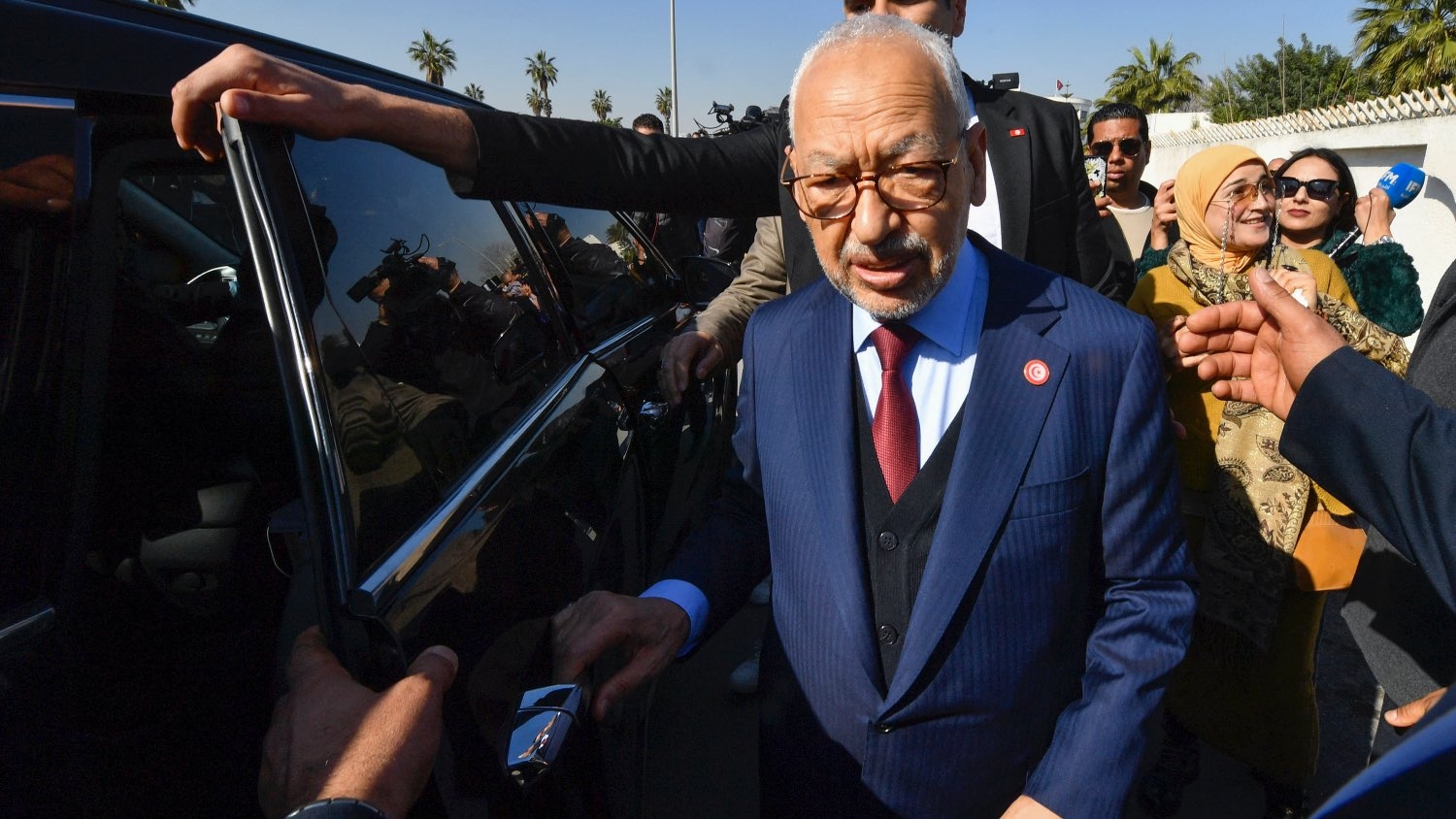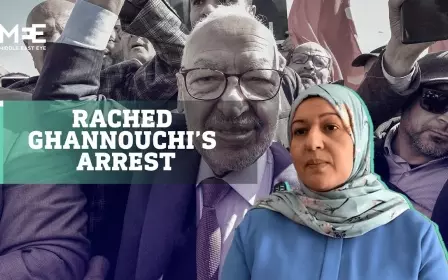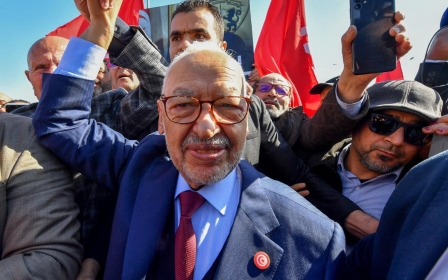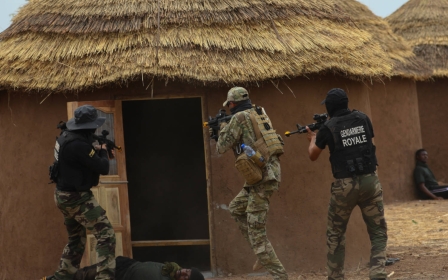Tunisia's Ghannouchi taken to anti-terrorism unit for questioning

The leader of Tunisia's main opposition party Ennahda, Rached Ghannouchi, has been taken from prison to a national security forces’ base to be investigated by the government's anti-terrorism unit, according to his daughter.
“Having failed to convince public opinion of the charge of inciting violence, Saied is moving to fabricate new charges against #Ghannouchi,” Soumaya Ghannouchi said on Twitter on Monday.
Monica Marks, a professor of Middle East politics at NYU Abu Dhabi, also tweeted that Ghannouchi was taken there, citing a confirmation from the politician’s legal team.
The purpose was not clear, according to Marks, however, Ghannouchi’s lawyers suspect there will be a new interrogation and the government will seek “to fabricate new charges” that are “related to terrorism”.
Middle East Eye reached out to the Tunisian embassy for comment on this story, but did not receive a response by time of publication.
New MEE newsletter: Jerusalem Dispatch
Sign up to get the latest insights and analysis on Israel-Palestine, alongside Turkey Unpacked and other MEE newsletters
Ghannouchi, the former speaker of Tunisia's parliament, was arrested last week during a raid on his home.
Earlier on Monday, Ghannouchi's other daughter, Yusra, spoke to MEE about her father's arrest.
She said that 100 plain-clothes agents arrived at Ghannouchi's home and took him to the country's military barracks.
She added that the arrest was "a part of a wider witch hunt" against Saied's political opponents and members of civil society.
Following the arrest, Tunisia’s minister of interior banned Ennahda and the National Salvation Front, the largest opposition coalition movement, from holding meetings, according to documents obtained by MEE.
'Political targeting'
Ghannouchi has been investigated by authorities for money laundering and incitement to violence, charges he denies and that his supporters claim are politically motivated.
In a pre-recorded video message published last week, he said: "We are facing another episode of political targeting by judicial means."
Ghannouchi is the latest member of the Ennahda party to be arrested by Tunisian police.
In February, senior Ennahda party leader Said Ferjani was detained.
Ali Laarayedh - the country's former prime minister - has been detained since December 2022.
In the past month, about 30 political activists, judges, lawyers, and the head of a radio station have all also been arrested and accused of conspiring against national security.
In July 2021, Saied unilaterally suspended parliament and dissolved the government, in what has been dubbed a "constitutional coup". He subsequently ruled by decree, before pushing through a new constitution that enshrined his one-man rule.
Prior to Saied's power grab, Ennahda controlled the majority of seats in the Tunisian parliament.
Ghannouchi, who is a fierce critic of Saied's consolidation of power, also had a travel ban issued against him last year. His Tunisian bank accounts and those of several relatives and members of his party were also frozen.
Last Wednesday, US State Department Deputy Spokesperson Vedant Patel condemned Ghannouchi’s arrest and the closure of Ennahda’s headquarters as "fundamentally at odds with the principles Tunisians adopted in a constitution".
Yet, MEE has reported that amid Saied's crackdown on civil society, the US-Tunisia military partnership is expanding and growing.
“The relationship is absolutely growing,” Brigadier General David Pritchett, director of joint staff at the Wyoming National Guard, which has a partnership with Tunisia's military, has previously told MEE. “We are enhancing cooperation.”
This growth comes amid calls from US lawmakers to rein in the military relationship.
"The Biden administration has, I think, made a bet on the Tunisian military," Democratic Senator Chris Murphy said earlier this month. "I would argue that we should make a bet on civil society instead."
Middle East Eye delivers independent and unrivalled coverage and analysis of the Middle East, North Africa and beyond. To learn more about republishing this content and the associated fees, please fill out this form. More about MEE can be found here.




